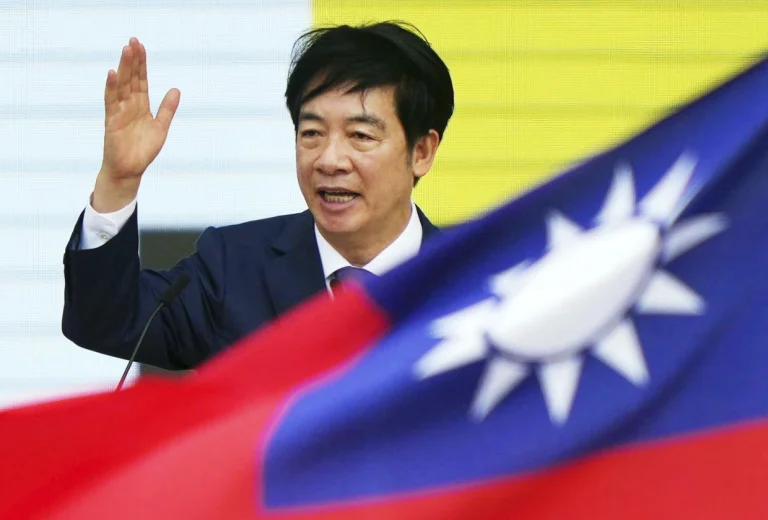Lai Ching-te reiterated his call for China to acknowledge Taiwan’s existence as a self-governing democracy, claimed by Beijing but beyond the jurisdiction of its courts.
Taipei, Taiwan — President Lai Ching-te emphasized on Monday that democracy should not be condemned while labeling autocracy as the true “evil,” following China’s recent threat of imposing the death penalty for extreme cases of Taiwan independence supporters.
China, which asserts Taiwan as its own territory, has openly expressed its disapproval of President Lai since his inauguration last month, branding him a “separatist” and conducting military exercises shortly after he assumed office.
On Friday, China escalated its pressure on Taiwan by introducing new legal guidelines aimed at punishing individuals accused of advocating for Taiwan’s formal independence, despite lacking jurisdiction over the democratically governed island.
When asked about China’s actions during a press conference at the presidential office in Taipei, President Lai first extended condolences for recent flooding in southern China before addressing the issue directly.
“I want to emphasize: Democracy is not a crime; it is autocracy that represents the true evil. China has no right whatsoever to impose sanctions on the people of Taiwan based solely on their political beliefs. Furthermore, China has no authority to infringe upon the rights of Taiwan’s people beyond its borders,” President Lai asserted.
President Lai further highlighted that according to China’s stance, anyone not supporting “reunification” is automatically deemed a Taiwan independence advocate.
“I also urge China to acknowledge the existence of the Republic of China and engage in dialogue with the democratically elected and legitimate government of Taiwan,” he stated, using Taiwan’s official name. “Failure to do so will only lead to further estrangement between Taiwan and China.”
Taiwan reported a significant rise in Chinese military flights since Thursday, accompanied by a “joint combat readiness patrol” conducted near the island by Beijing.
Between Thursday and Sunday, Taiwan detected 115 Chinese military aircraft operating in close proximity, some as near as 31 nautical miles from the southern tip of the island.
Taiwan has asserted that China has engaged in regular military activities around the island for the past four years as part of a “gray zone” pressure campaign. President Lai rejects Beijing’s sovereignty claims, emphasizing that only the people of Taiwan can determine their future. Despite repeated offers for dialogue with China, President Lai has faced consistent rebuffs.
China has warned that any formal declaration of independence by Taiwan would be met with military action.
The Taipei government maintains that Taiwan is already an independent nation, known formally as the Republic of China, and has no intention of altering its status. The Republic of China relocated to Taiwan in 1949 following defeat in a civil war against Mao Zedong’s Communist forces.
President Lai also confronts domestic challenges, as his Democratic Progressive Party (DPP) lost its legislative majority in the same election in January that brought him to power.
During the same press conference, President Lai announced his intention to petition the constitutional court to suspend a set of controversial parliamentary reforms passed by the opposition and assess their constitutionality.
The opposition argues that the reforms, which include provisions criminalizing contempt of parliament by government officials, are necessary for enhancing accountability. In contrast, the DPP contends that the reforms were rushed through without adequate discussion.

